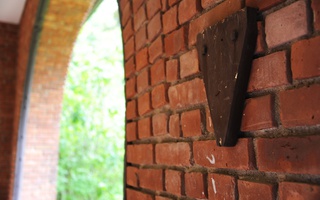{shortcode-8297bd58aad82072c6b232ef528e8706a864d5f5}Administrators keep changing their rationale for abolishing unrecognized final clubs and social groups, now suggesting a ban on the groups in the name of inclusion. Don’t fret, though: You can feel outraged about the newest proposal for all the old reasons. Harvard discarding all pretenses of caring about students’ civil liberties? Check: “Dean Khurana has clearly abdicated any position of principle with respect to freedom of association,” one student told The New York Times. The administration’s participating in a large-scale abandonment of democratic values? Make it two for two: “Just because the rest of the world is finding authoritarianism more congenial than personal freedom,” former Dean of the College Harry R. Lewis ’68 wrote, “doesn’t mean Harvard has to follow suit.” If each special committee report calls for harsher condemnation, then we risk running out of critical material.
For most people, authoritarians are always the administrators who take the other side of a given debate. But in concrete terms, what seems to concern these self-styled defenders of student freedoms is an uneasiness with the College punishing students who hold opinions contrary to its own. “Is membership in the Republican Party less an affront to ‘our deepest values’ than membership of the Fly?” Professor Lewis, along with three colleagues, asked last year. Other critics have echoed this sentiment: Students, wrote former Undergraduate Council president Gus A. Mayopoulos ’15 about the initial sanctions, “are now being taught that it is acceptable to threaten and silence those who have different social and political beliefs than they do.”
These criticisms of social engineering on the part of faculty are both inspiring—my local ACLU chapter is applauding somewhere—and badly misleading. First, rights of assembly and association are usually tied to the protection of unpopular or controversial speech. If you dusted off your AP US History flashcards in search of restricted associations, your historical paradigms might include American communists and NAACP chapters.
By contrast, most social groups on our campus, and final clubs in particular, are not facilitators of endangered, anti-establishment voices. Whatever unpopularity they garner with students isn’t the product of relentless and provocative social activism. Nor are many social clubs dedicated to providing a home for otherwise neglected religious or cultural groups—another kind of constitutional protection which isn’t really at issue here.
Don’t abandon your eloquent defense of First Amendment rights, but note a further, more fundamental problem with constitutional comparisons: National and educational contexts call for appropriately tailored arguments. It seems clear that private educational institutions can impose burdens on students that would be entirely unacceptable in other contexts.
The federal government has no business telling me what language to speak, for example, but a language immersion program may very well prohibit participants from speaking their native tongue, even when leaving campus or calling friends and family—a policy that reaches well beyond the classroom. And what justifies such restrictions is, of course, the aim of establishing a learning community that devotes itself to effective foreign language instruction.
Debating the suggested ban on social groups requires the same attention to (a) the mission of the College and (b) whether or not the specific proposal best advances it. Some critics of the administration, like Psychology Professor Steven Pinker, understand Harvard’s purpose to include classroom instruction, research, and not much else. But many of us see value in the College’s actual, officially-stated mission, as often espoused by Dean Khurana,“to educate the citizens and citizen-leaders for our society”—leaders who are shaped for better and for worse by the social relationships that define college life. If the College is right to adopt a broadly civic mission, and final clubs or Greek organizations negatively impact the kind of “citizen-leaders” it graduates, then in principle that opens the door for attempts to restructure, curb, or even ban those influences altogether.
You might argue that final clubs and Greek life don’t dilute or distract from the College’s mission. And none of this is to say that the proposed ban would intelligently accomplish its objectives in practice, however legitimate its goals. As demonstrated by the hundreds of sorority and female final club members who protested sanctions last year, many unrecognized social groups reflect a failure on the part of the University to create communities for students who instead find them in off-campus spaces.
But with those caveats in mind, we should put soaring denunciations of the ban in perspective. Does this policy spell the end of principled freedom of association on our campus? Probably not, especially with any good understanding of that freedom in our university-specific context. Does the committee’s work send the College hurtling towards authoritarianism alongside the rest of the Western world? We should always remain vigilant, but I think apocalypse will require a few more faculty task forces.
Gabriel H. Karger ’18 is a philosophy concentrator in Mather House.
Read more in Opinion
Requeermended Playlist

















